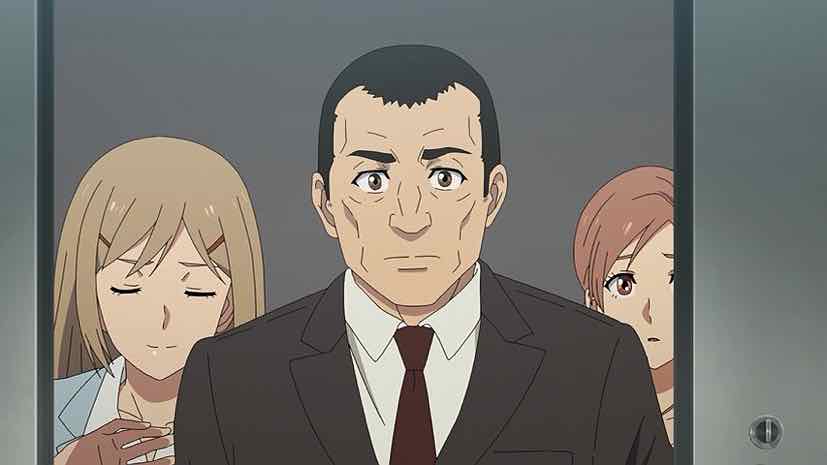 Let me just say up front, I wasn’t a huge fan of the last episode of Bartender. It was pretty good, but a couple of the big payoff moments kind of whiffed for me. On the heels of what was probably the best three-episode run of the series, I didn’t think this was on that same level. That said, however, one passage here really clicked with me. That was the one where Ryuu and Taizouu were playing catch, and Taizou referenced a poem. Or a song, I wasn’t sure at the time. I was unfamiliar with it but it resonated in a big way. Turns out it’s called Hana wo Motte, Ai ni yuku (“With Flowers in Hand, I Go to Meet You”), by Nakada Hiroshi (thanks to Princess Usagi for finding it for me).
Let me just say up front, I wasn’t a huge fan of the last episode of Bartender. It was pretty good, but a couple of the big payoff moments kind of whiffed for me. On the heels of what was probably the best three-episode run of the series, I didn’t think this was on that same level. That said, however, one passage here really clicked with me. That was the one where Ryuu and Taizouu were playing catch, and Taizou referenced a poem. Or a song, I wasn’t sure at the time. I was unfamiliar with it but it resonated in a big way. Turns out it’s called Hana wo Motte, Ai ni yuku (“With Flowers in Hand, I Go to Meet You”), by Nakada Hiroshi (thanks to Princess Usagi for finding it for me).
I could quote a passage, but the whole thing is so beautiful (she tells me even more so in Japanese) that I thought I’d share the entire thing.
On a spring day, I come to see you.
You are the one who is gone.
You are the one who is nowhere to be found.I go to see the person who is nowhere to be found.
With clean water,
And beautiful flowers in my hand.Is he/she nowhere to be found?
No, says the one who is gone.
It is not that they are nowhere.They are not going anywhere.
They are always here.
They stopped walking.I stopped walking,
I learned something for the first time.
Walking is going somewhere other than here,Far away, far away, far away,
I used to think that walking meant going somewhere far, far away, far, far away.
I realized that it was not so,I realized that it was not so until after I died. No more,
I’m not going anywhere,
I was never going to go anywhere or far.When I realized that,
I am here now,
This is where I have come to,the furthest place I have ever been.
The furthest place from this world,
is really the closest place to this world.is really the place closest to this world.
To live is to grow old.
When you die, you don’t age.My first friend in life
My first friend in life
still ten years old.My mother, who died
My mother, who died of an illness,
died and became well again.It is not death, but
left behind in me.
I believe in the memories that she left behind in me.What do you think words are?
A feeling that can never be put into words,
that can never be put into words, are here.Even with people I never spoke to before,
I learned that I could talk to people I never talked to,
I learned that I could talk to people I had never talked to before.The branches of the trees in spring
Their branches are competing with each other,
to grasp the misty sky.I’m coming to see you on a spring day.
With clean water,
and beautiful flowers in my hands.
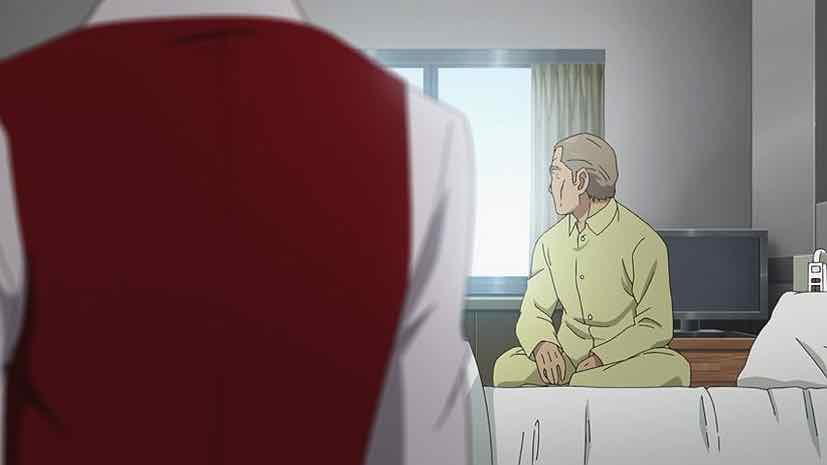 I obviously can’t give Bartender credit for writing that. But I can give it credit for having the good taste to quote it. And what’s more, to do so in a context that really lends power to it. Taizou is talking about his dead son of course, and playing catch is a way of expressing his regret over missed opportunities. And in doing so he wonders if he’s creating a memory in the mind of Ryuu, which will stay with him after he’s gone. It’s a grace note of the sort anime almost never delivers, and I find myself quite laid low by what Nakada has written – it’s very deep and very powerful.
I obviously can’t give Bartender credit for writing that. But I can give it credit for having the good taste to quote it. And what’s more, to do so in a context that really lends power to it. Taizou is talking about his dead son of course, and playing catch is a way of expressing his regret over missed opportunities. And in doing so he wonders if he’s creating a memory in the mind of Ryuu, which will stay with him after he’s gone. It’s a grace note of the sort anime almost never delivers, and I find myself quite laid low by what Nakada has written – it’s very deep and very powerful.
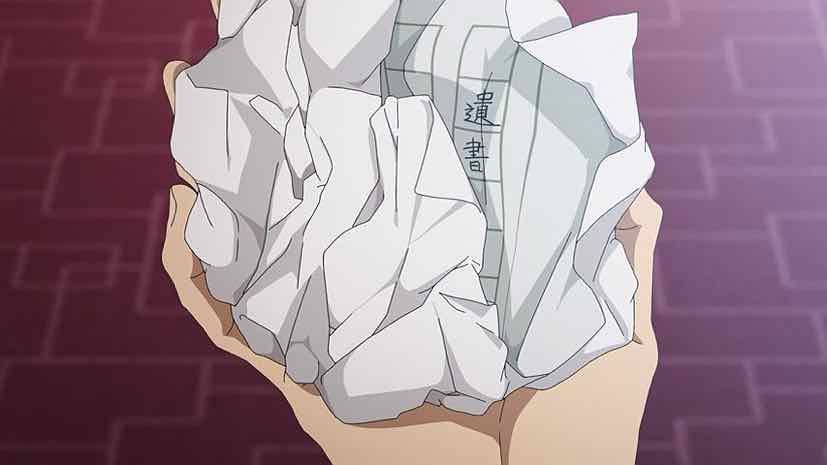 I’m not that nuts for the way the story itself wrapped up, to be honest. The bit with Kurosawa-san the novelist was too convenient and resolved too easily to have any real impact. And the lesson Sasakura-san takes from it is that he should leave Edenhall and go to the Cardinal, but it’s OK if he takes the name and the sign with him? I don’t get the sentiment, to be honest. I mean, what the hell difference does that make? Maki-san is still out a bar, and Sasakura has still left behind the place with all those memories the bartender himself can’t make.
I’m not that nuts for the way the story itself wrapped up, to be honest. The bit with Kurosawa-san the novelist was too convenient and resolved too easily to have any real impact. And the lesson Sasakura-san takes from it is that he should leave Edenhall and go to the Cardinal, but it’s OK if he takes the name and the sign with him? I don’t get the sentiment, to be honest. I mean, what the hell difference does that make? Maki-san is still out a bar, and Sasakura has still left behind the place with all those memories the bartender himself can’t make.
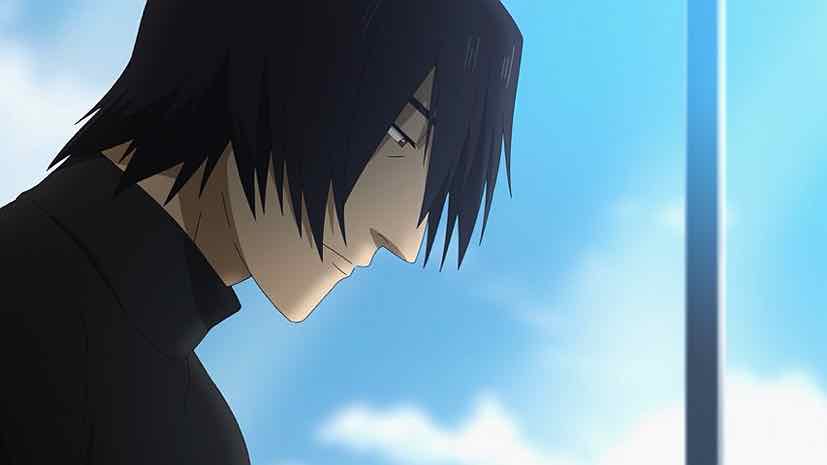 To be honest though that seems like pretty trivial stuff compared to the sentiments expressed by Nakada. And I have to be grateful to Bartender for making me aware of him, which I wasn’t, and for making me feel something really deeply as a result. There is a certain mysticism to the role of the bartender, and it transcends cultural lines. And this series really gets that. There were definitely some valleys and the self-promotion by Suntory was very obnoxious at times. But it was nice to see a show about adults and adult problems, and a cultural phenomenon rarely explored in animanga getting a chance to shine.
To be honest though that seems like pretty trivial stuff compared to the sentiments expressed by Nakada. And I have to be grateful to Bartender for making me aware of him, which I wasn’t, and for making me feel something really deeply as a result. There is a certain mysticism to the role of the bartender, and it transcends cultural lines. And this series really gets that. There were definitely some valleys and the self-promotion by Suntory was very obnoxious at times. But it was nice to see a show about adults and adult problems, and a cultural phenomenon rarely explored in animanga getting a chance to shine.


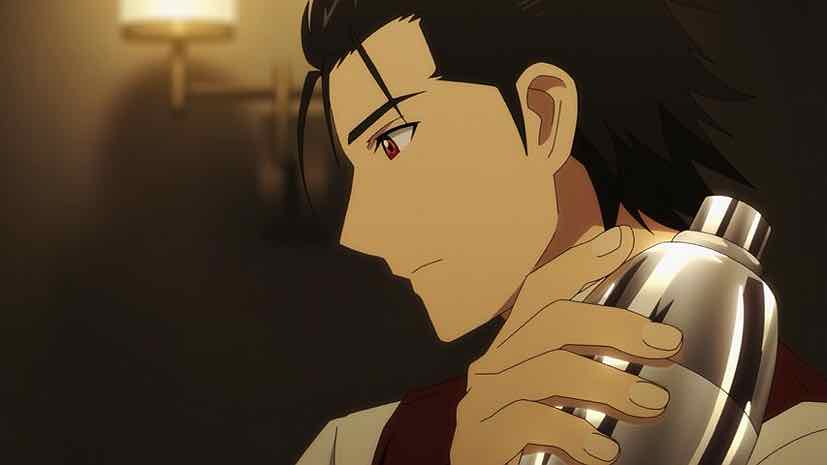
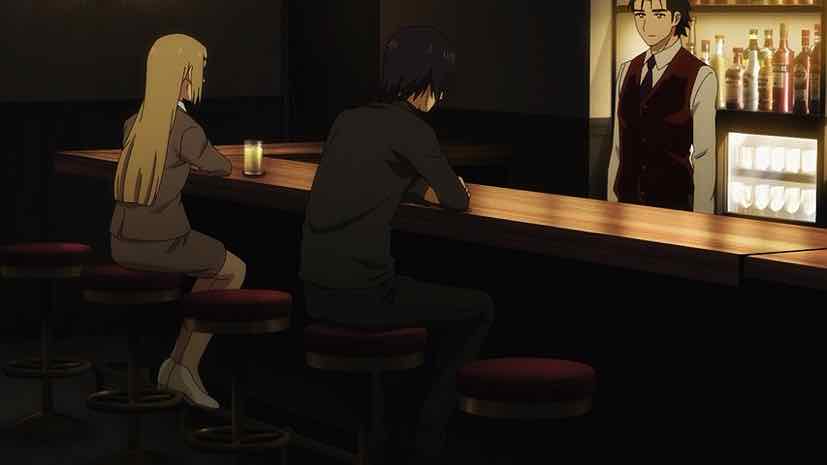
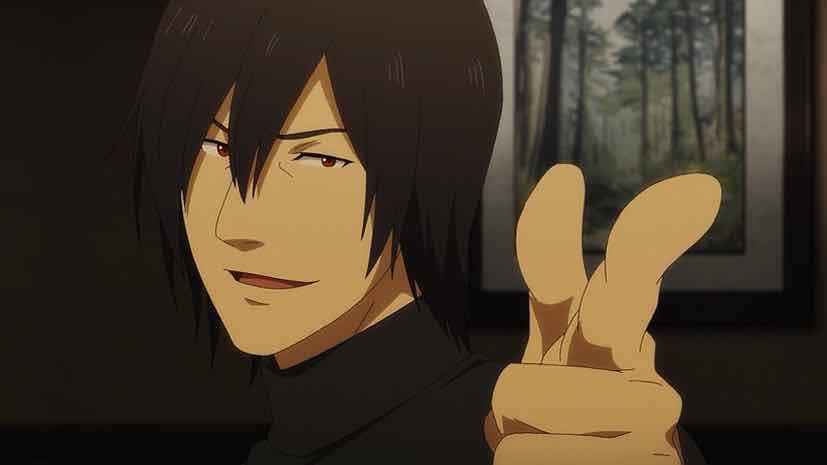
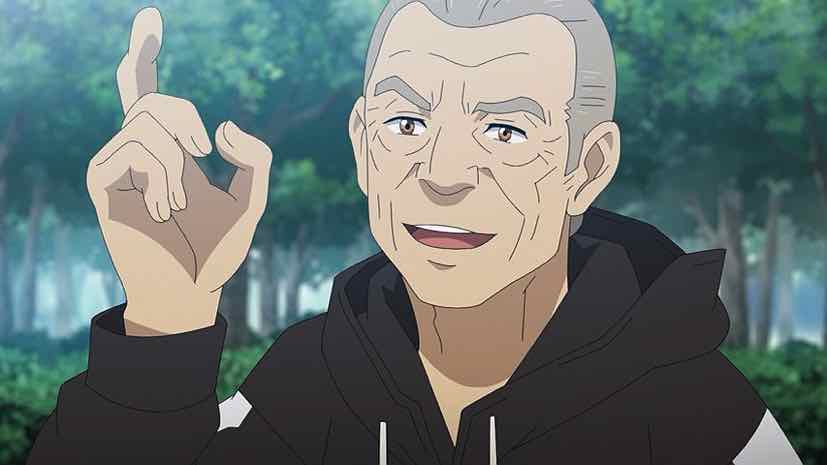
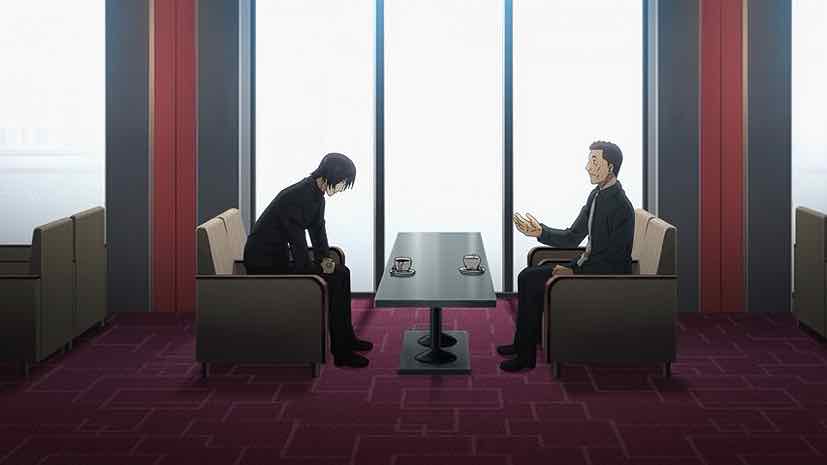
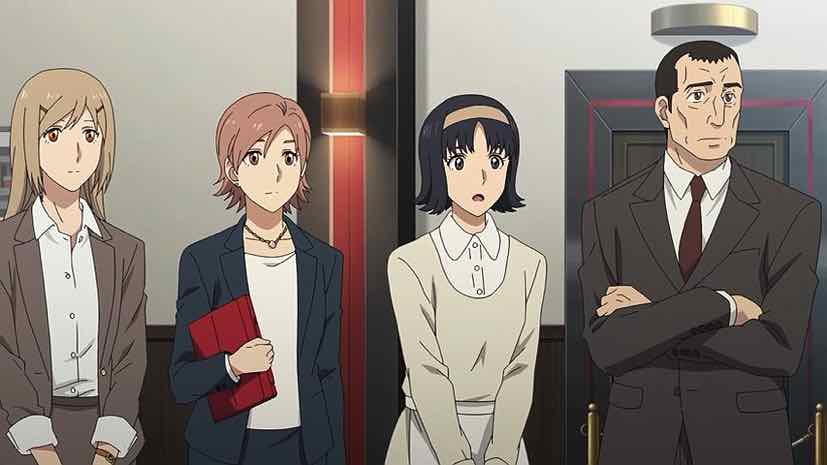
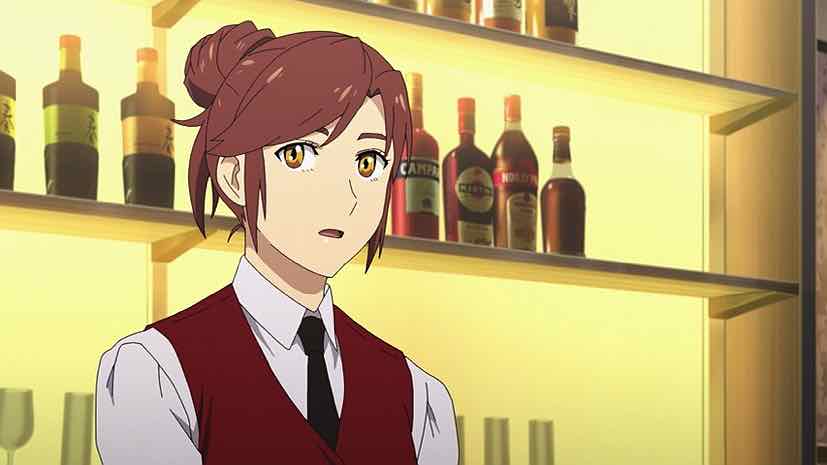
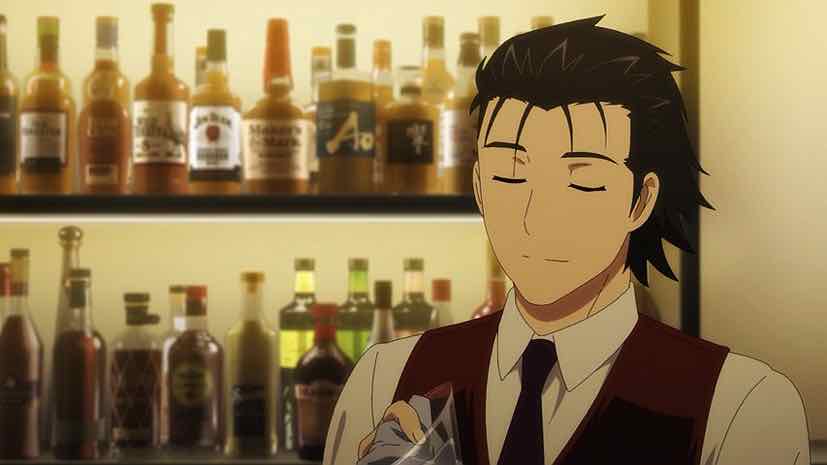
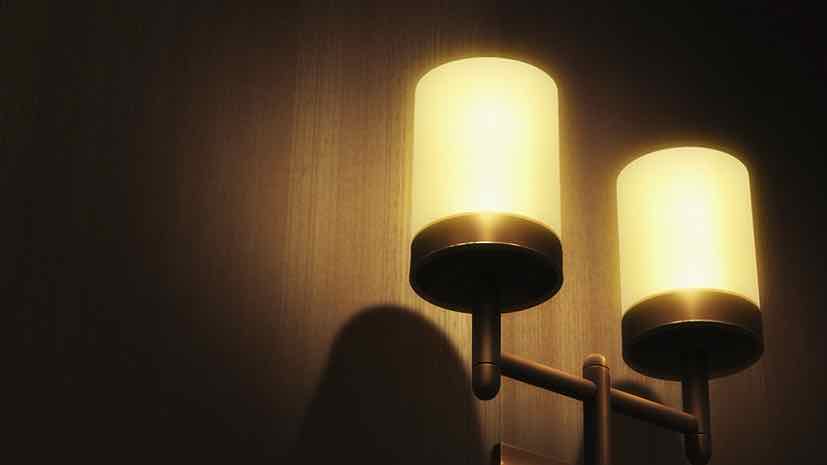
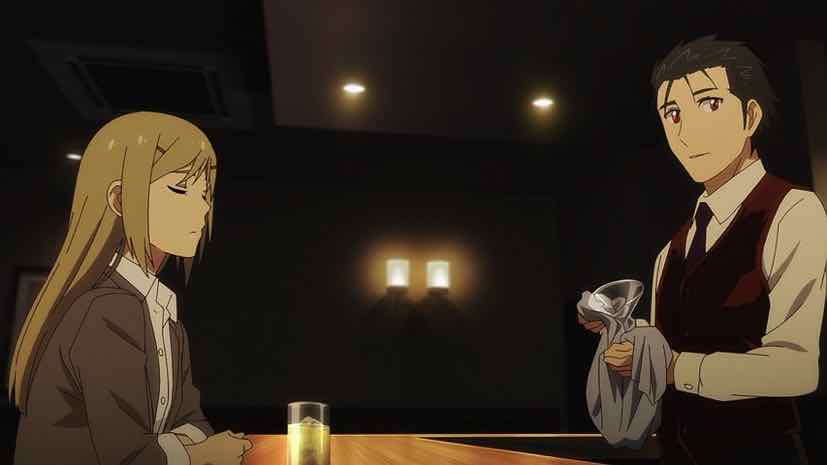
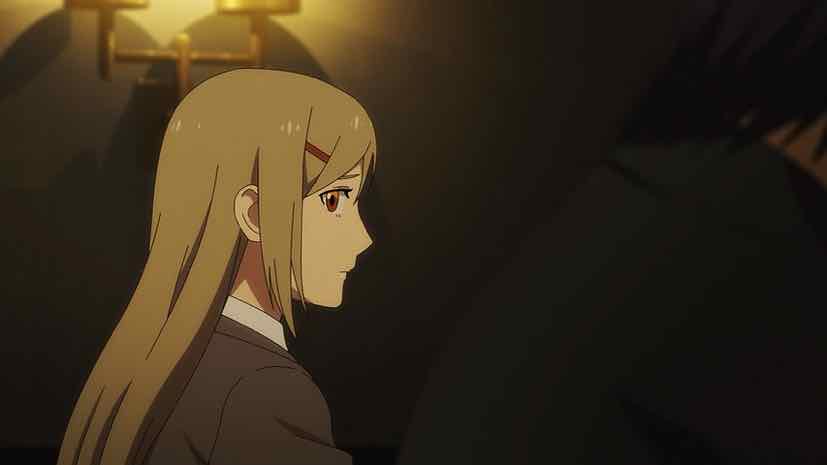
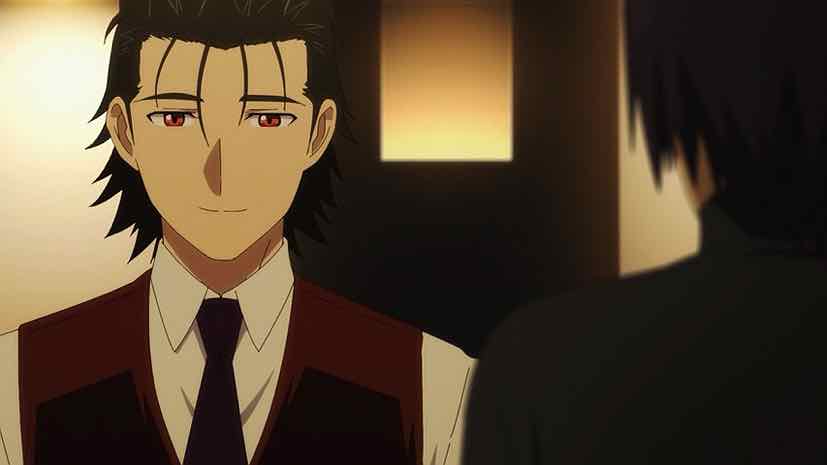
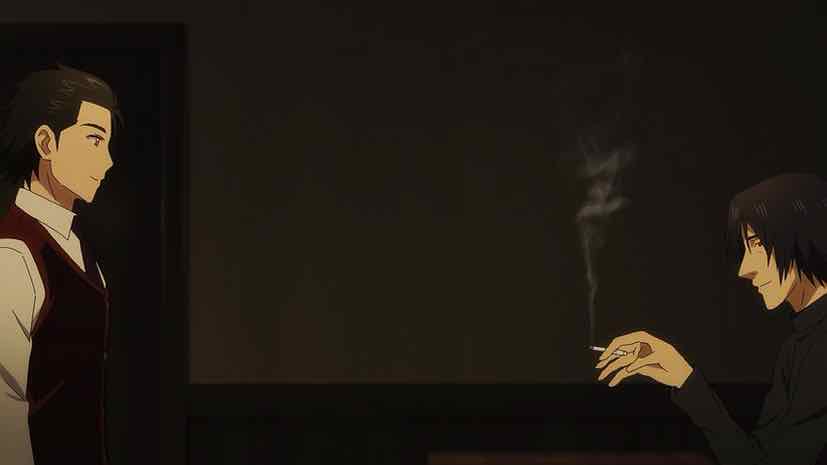
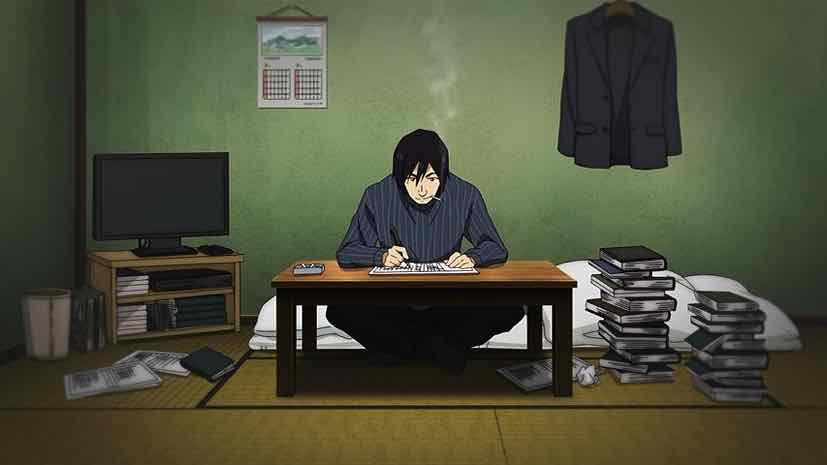
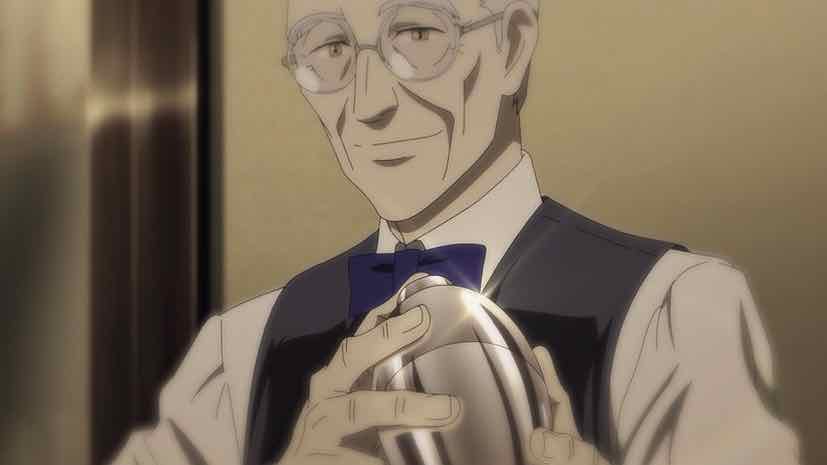
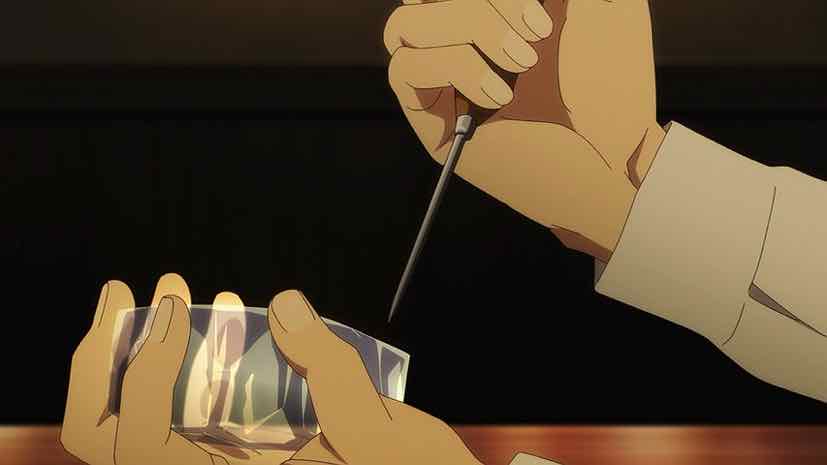
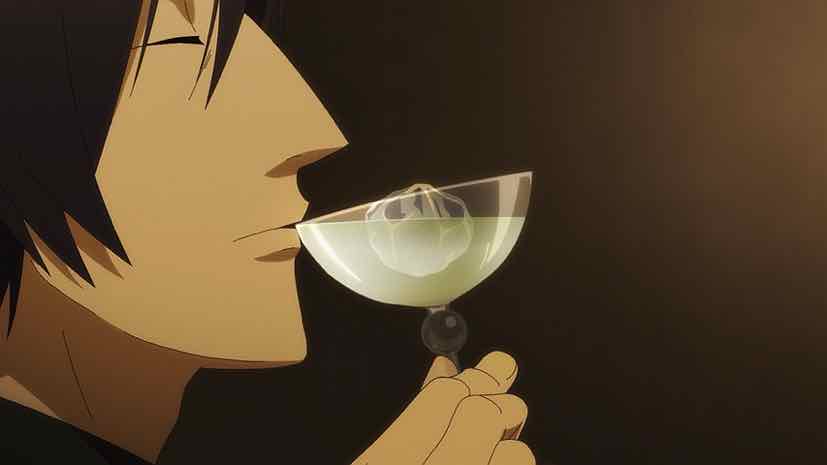
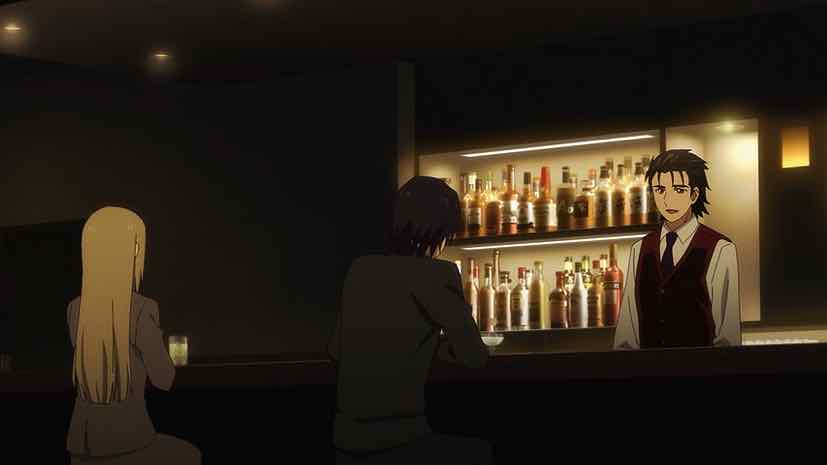
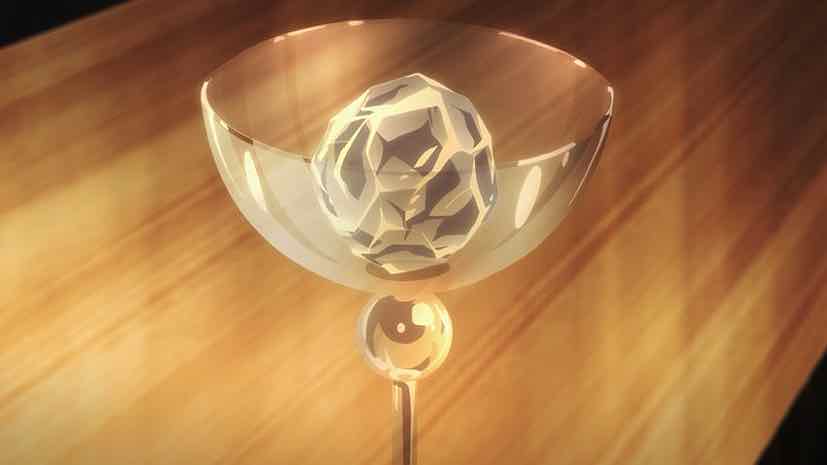
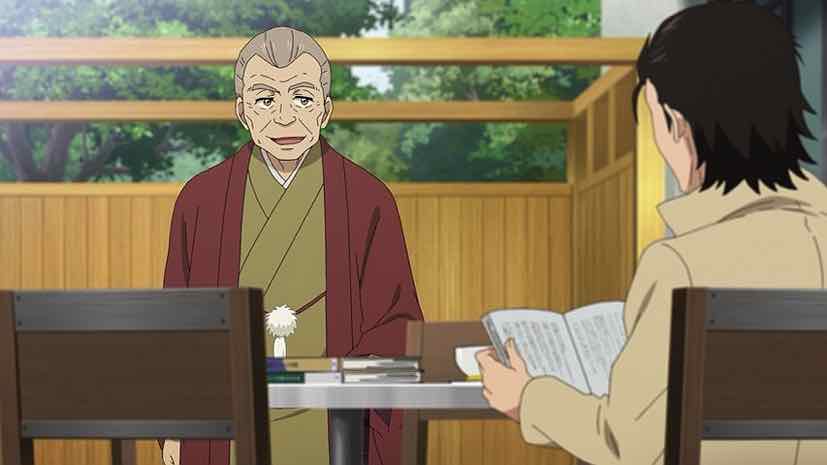
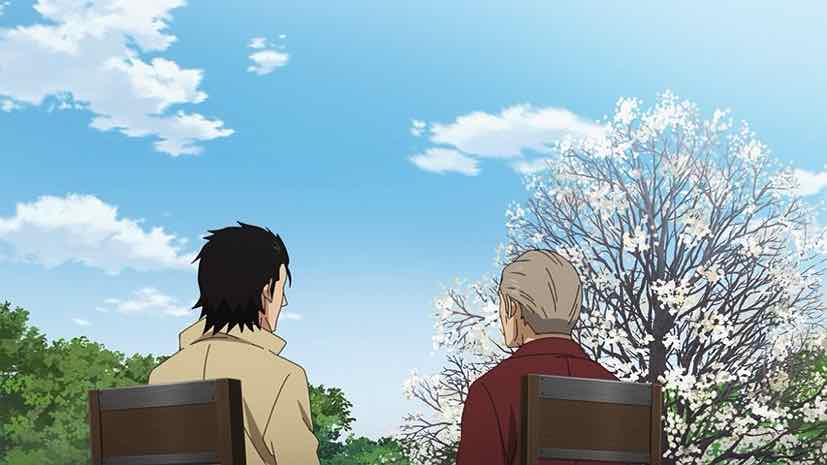
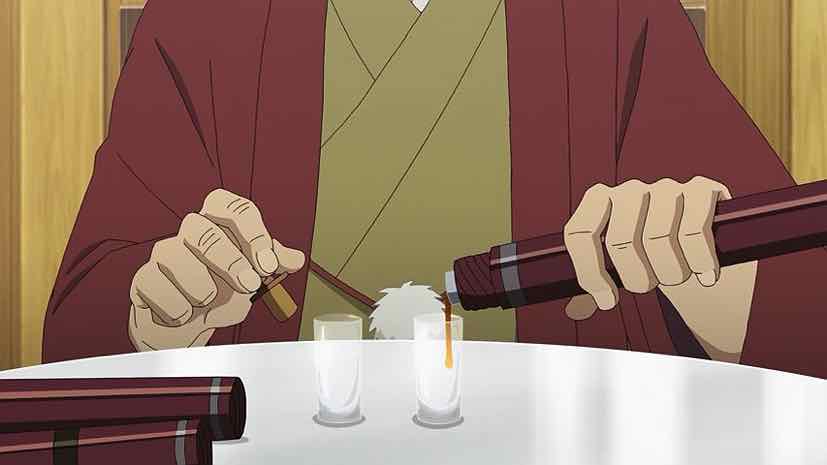
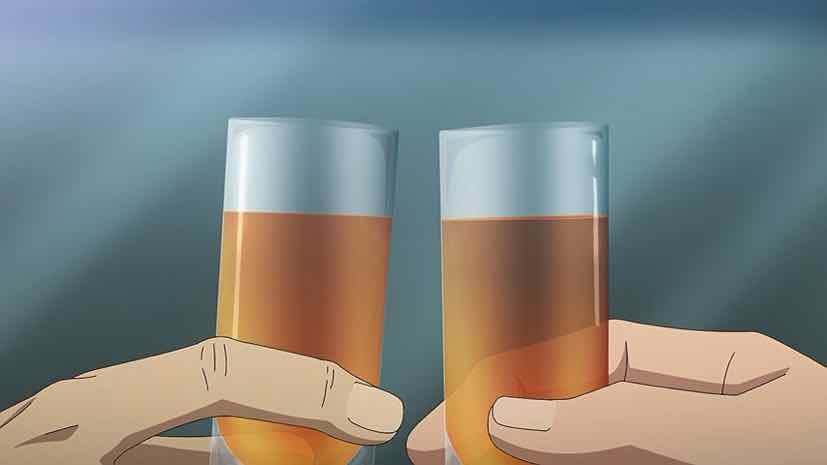
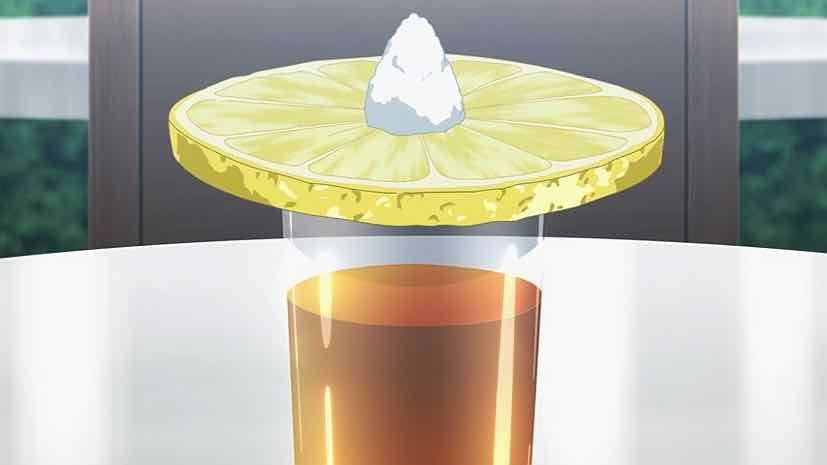
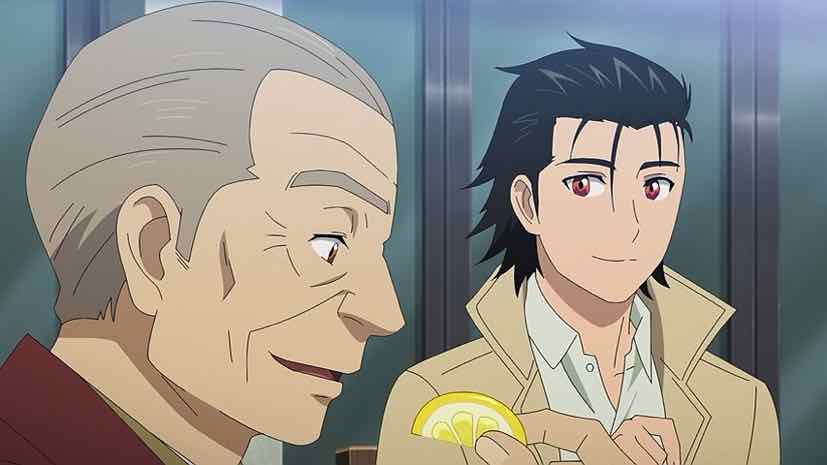
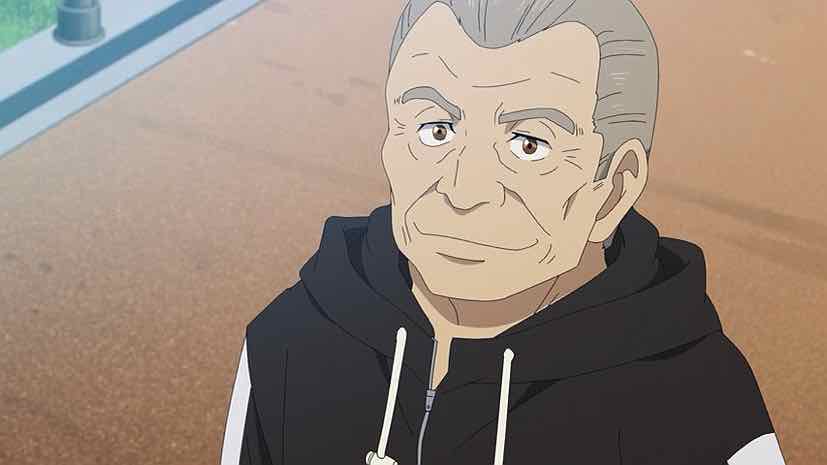
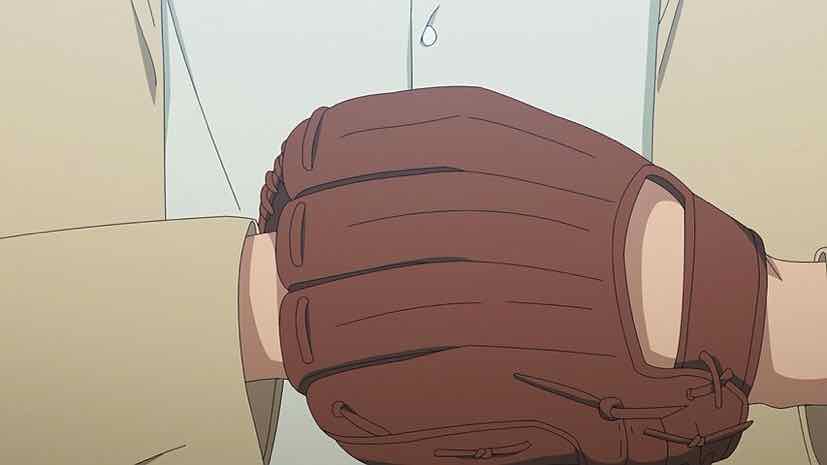
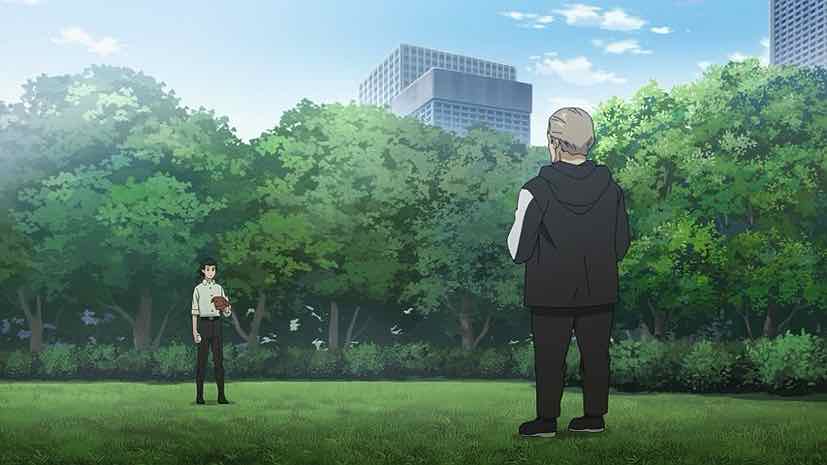
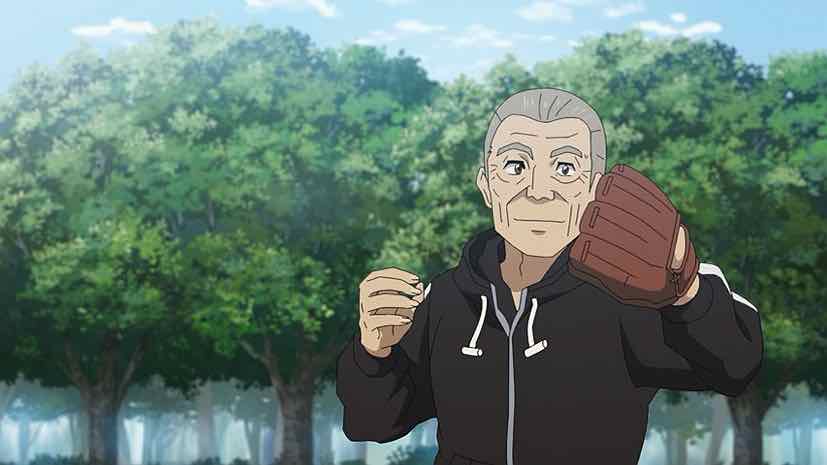
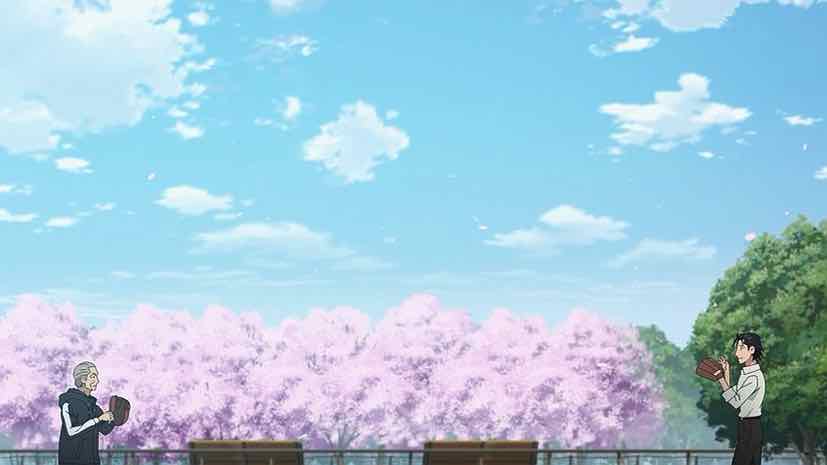
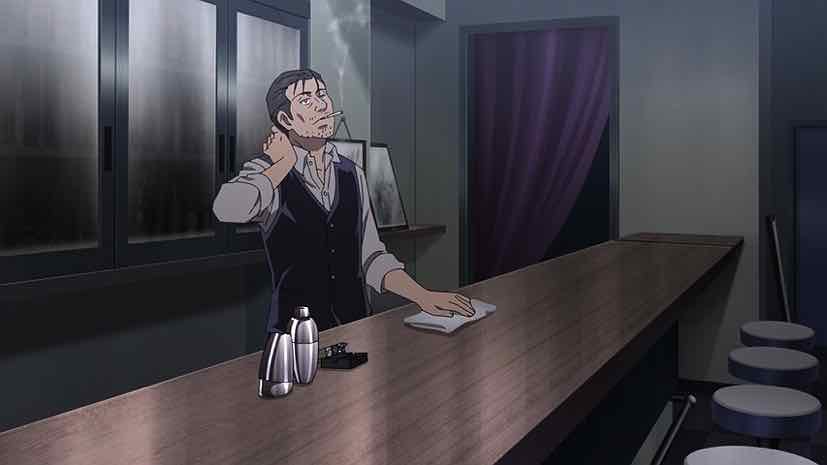
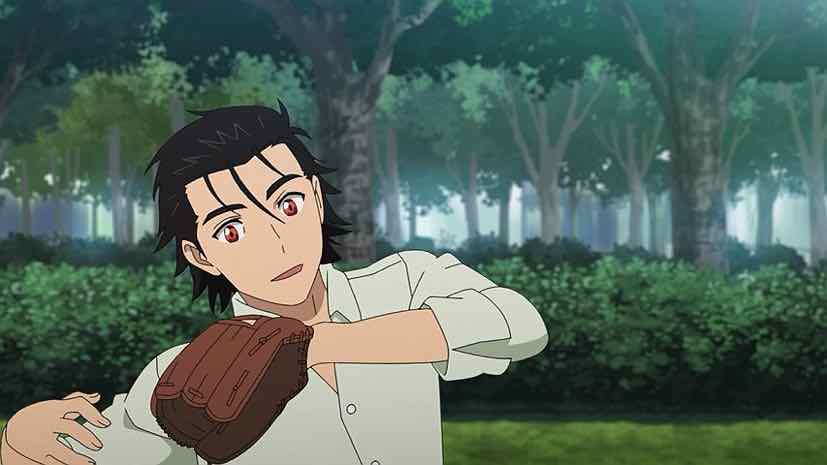
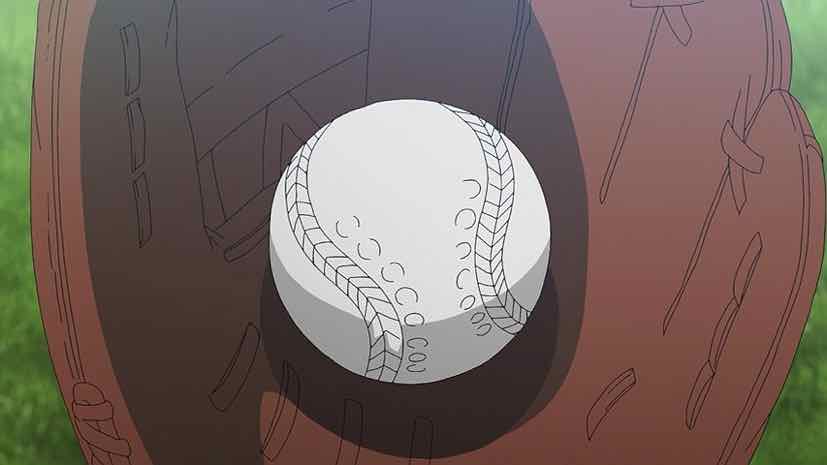
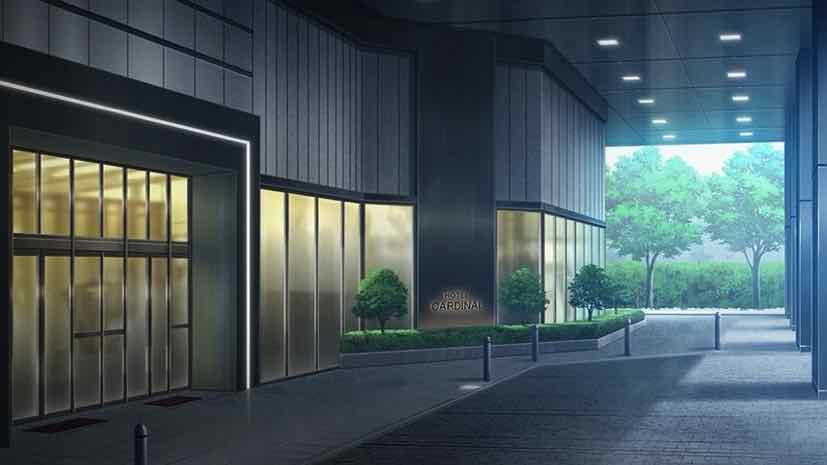
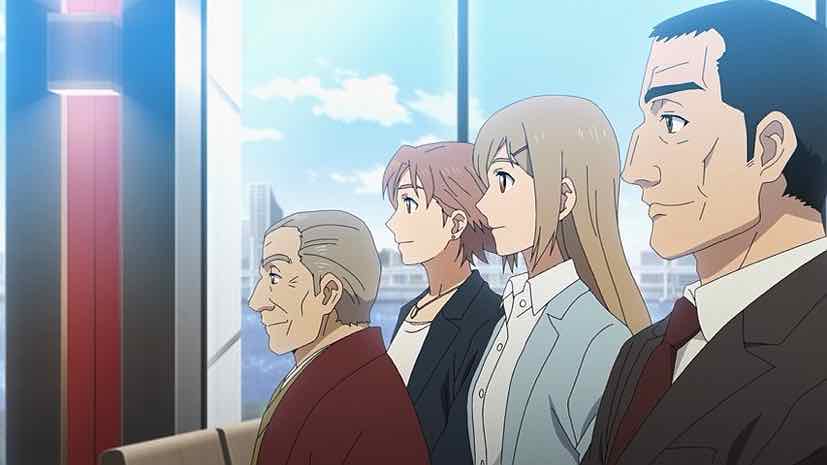
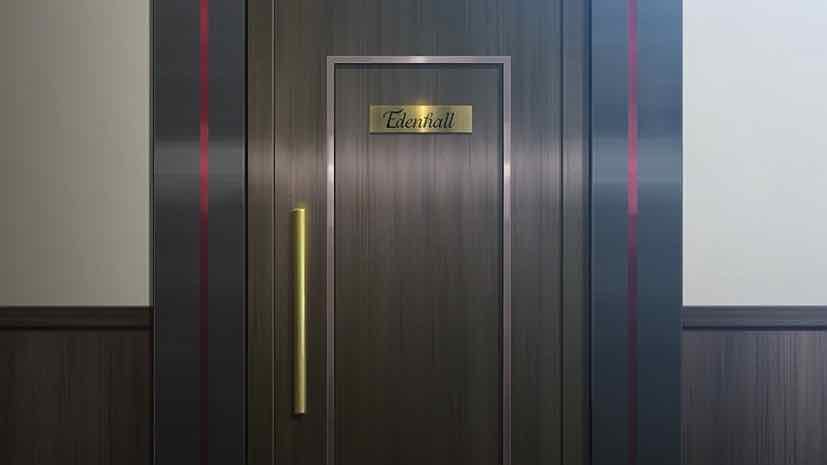
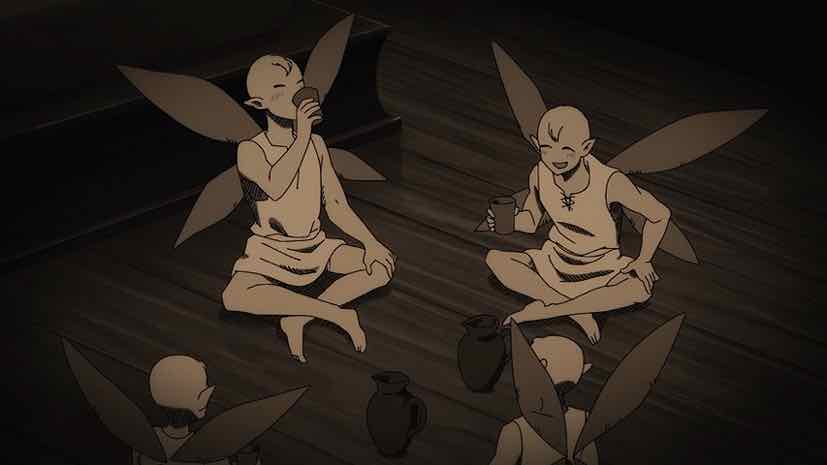
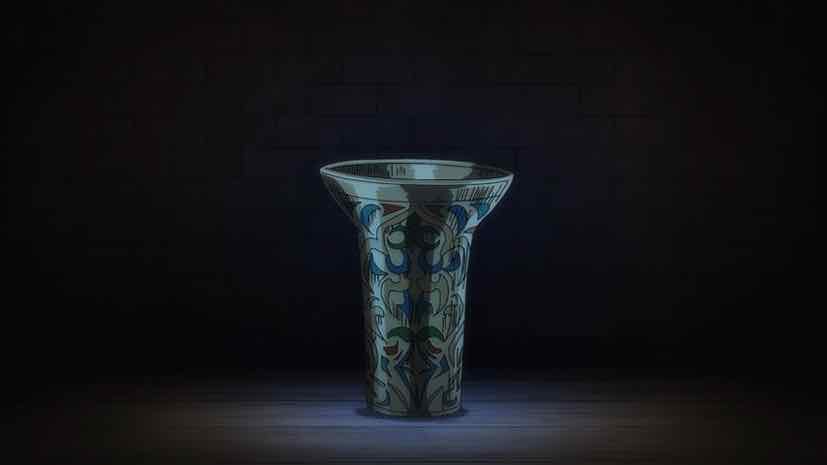
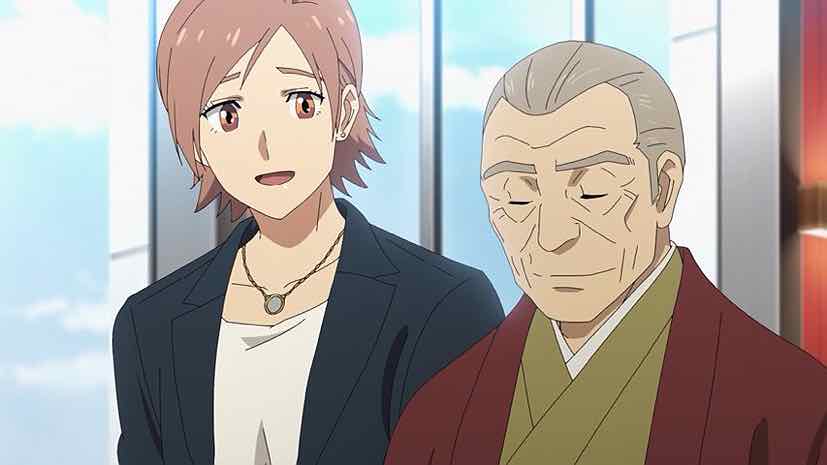

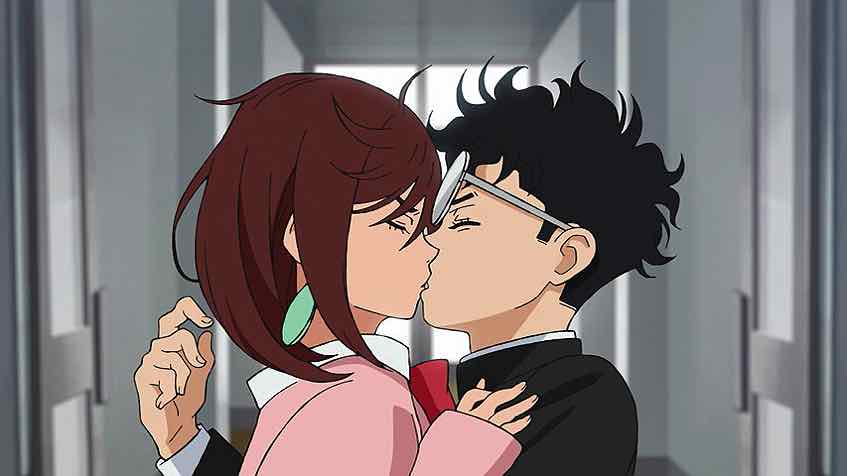
Nicc
June 23, 2024 at 11:53 amIt’s last call as we have one more round with Sasakura and company. My drink of choice for this occasion was a NA Kölsch-style beer. I agree that it wasn’t really the best finale, but I still liked it enough. Sasakura is still thinking about what to do with Edenhall. Miwa tells him about a novelist named Kurosawa who has been staying at the Hotel Cardinal for a while. He’s a hot, new author and his editor is waiting for a manuscript. However, it appears that he hasn’t gotten much if any writing done. He’s seen at the outer bar at the hotel every night and then heads out for more bar hopping. Sasakura has even heard of him before and then Kurosawa stumbles in. Yep, that was too convenient as it harkens back to Paris. The featured cocktail in the scene is the Sledgehammer (“You could have a big dipper. Going up and down, all around the bends”. Love the music video). This time Sasakura was able to help somebody back away from the ledge.
I suppose that helped Sasakura find peace with what happened in Paris as he seems ready to move on. Still, you’re right that there wasn’t much of a payoff there. As it were, he meets Taizo at a library. He just got out of a hospital after he took some kind of spill. He’s fine now, but just simply falling down has killed a lot of seniors. The featured cocktail in this scene is the Nikolaschka, named after the last emperor of the Russian Empire. Baseball unexpectedly shows up as both Sasakura and Taizo played a game of catch. It seems that it was something that was missing from their lives. I never heard that poem before, but it was beautiful. The only thing missing from the scene was Kevin Costner wiping a tear from his eye.
They also worked out the terms for Sasakura working at the Hotel Cardinal. Thus, Sasakura leaves Edenhall and reopens at… Edenhall. He just traded a basement bar for one that is at a higher elevation. It certainly won’t be as accessible as his old place. It’s easy enough to stumble into a bar at a basement. It takes bit more work to stumble into the Hotel Cardinal, the stumble their way through the lobby, then stumble their way to an escalator, press the right buttons to get to the right floor and then… to just settle for the outer bar where Kyouko is working at rather than stumble through another door to get to Edenhall. Unless of course fate may compel them so, which seems to be the case for the featured customers in this series. But don’t stumble too much or hotel security may escort them out before they get there. I enjoyed my time at Edenhall even with all the shilling of Suntory products. I’m waiting for an OVA which is nothing but product placement for 24 minutes. I can set it up already. The Park Hyatt Tokyo is closed for renovations and Suntory needs to find another hotel to shoot another series of commercials with an aged Bob Harris. Thank you for your coverage for this series and it is always great to watch shows featuring adults for a change.
Hatakashi
November 23, 2024 at 7:02 amI think the ending was wrapped up a little too quickly compared to the other stories told. Overall it was a good show that spoke true of adult problems and regrets. I believe in the end he was able to find peace with what happened in Paris as well as making up his mind. The point of taking the nameplate and why I believe it was an important is because he didn’t want to lose the memories he made while working there. Taizo’s rendition of the poem helps to convey this when he says “I am not going anywhere, I will always be here”. And with the change of scenery its like the changing of seasons and in spring “the branches of the springs trees race to blossom, and reach upward to grasp the misty sky” he went from the basement or the ground/ underneath it to the top floor of the Cardinal (bird=fly) Hotel or sky. He has grown as a bartender since the terrible experience as well as his mindset to continue to reach higher. I think the last episode really tied everything together for Sasakura’s story and getting closer to his Glass of God. And with last point made I think even with how hard it is to get to the top floor that’s also a part of it. The journey to what you want isn’t easy but you have to aim high to get there. Thanks for the poem as well. It really connected to me and why ended up here.